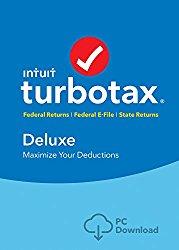
“Don’t fight the Fed.”
Or so the old Wall Street saying goes. This refers to the Federal Reserve, the conglomeration of bank executives who hold a huge amount of power over the US economy and its money supply. Think of the Federal Reserve as controlling a huge valve that supplies all of the water to your town. If they open the valve up farther, there is lots of water and things are good. If they close the valve down, you open the tap and nothing comes out.
Now this is a really, really long line with a big delay. They may start to close the valve today, but it may be six months to a year before the water starts to slow. Likewise, they may open the valve wide, but it may be six months before the water starts to flow faster (kind of like when you looked into a garden hose as a kid, then got sprayed in the face when the water finally made it to you).
Instead of water, the Federal Reserve control money, or more specifically, loans.

If the Federal reserve opens up the spigot, banks have lots of money to lend, so businesses can get easy loans and expand. If they close things down, then loans dry up and businesses start to close down factories and lay off workers. Just like our example with the valve, the effect is not instantaneous – it takes a while for the effects to move their way through the economy and start to effect businesses. This makes sense since it takes a while for enough businesses to apply for loans that they start to use up the available cash when the Fed shuts things down, and it takes a while for banks to decide its safe to ramp-up lending when the Fed opens things up.
The Fed has three primary tools that they can control. The first is the rate of loans, which they control by adjusting the rate banks charge each other for overnight loans, or the rate at which the banks can borrow directly from the Fed. The second lever they have is because there is a requirement the Fed has on banks on how much money they must have in their “vaults” in reserve. The fed can force banks to buy federal reserve notes from them, which locks up cash, or they can buy reserve notes back from the banks, putting cash into their vaults that they can then lend out. For the third lever, they can simply reduce the requirement for the amount of cash banks need to keep in their vaults and increase the money supply that way.

Only $99.99: Instant Pot IP-DUO60 7-in-1 Multi-Functional Pressure Cooker, 6Qt/1000W
For the last several years, basically during the entire previous Presidency, the Federal Reserve has kept interest rates as low as possible and flooded the economy with cash. So many other factors were preventing companies from growing and expanding, however, that the economy didn’t expand anyway; therefore, the Federal Reserve kept rates very low for a long period for time. This caused bond prices to rise initially, then stock prices to rise later as inflation started to appear. Now, with taxes expected to drop and regulations expected to be reduced, the economy is finally starting to ramp up. This has caused the Federal reserve to look at raising rates for the first time in a long while in order to try to keep the economy from getting overheated and inflation from getting too high.
So for many reading these words, this may be the first time you’ve seen the Federal reserve doing anything but keeping rates low. The question then becomes:
What effect will this have on your stocks and bonds?
Expect bond prices to fall as rates rise. This is because rising rates cause bank assets like CDs and money market funds to pay more (finally some good news for savers), which means that people won’t buy bonds unless the price is low enough to make the effective interest rate paid worth the added risk when compared to bank assets. Stocks will also probably fall at first as well as people worry that raising rates will cause the economic expansion to slow.

So what should you, the small investor do? If you are investing for a long period of time, like five, ten, or twenty years, don’t worry about it. The Federal Reserve will eventually lower rates again and any losses you see here will be recovered. If you think the Fed will raise rates and you pull your money out, but they decide to wait, or if the economy churns along anyway despite the actions of the Fed, you’ll miss out. You don’t want to miss out on a big rally by being on the sidelines. If you want to do anything, pile up some cash by working and saving more and be ready to put it into the market over the next six months to a year should the Fed cause a bit of a dip in prices.
Likewise, if you’re investing in bonds for long-term income, don’t worry. Bond prices may dip, but you’ll be paid face value on the bonds if you hold them for long enough for them to mature. And again, when the Fed lowers rates in the future, prices will go back up, so no worries.
If you’re a short-term investor, maybe looking to retire in a few years, you should also do the same thing you should do regardless of what the Fed is doing:
If you’re within a few years of needing the money, you should be moving money you really, really need to cash assets.
If you really need the money in a few years, the only place to have it is in cash. If bond prices go down, making bond yields go up, you could then buy in when you start retirement to generate income with the cash you’ve raised. If prices stay up because the Federal Reserve decides not to act, you’ll then have the cash you need for initial living expenses without needing to sell your stocks and bonds in a hurry. Don’t fight the Fed, but don’t let your guesses about what the Fed might do in the future and the effect on the markets drive your strategy.
Have a burning investing question you’d like answered? Please send to [email protected] or leave in a comment.
Follow on Twitter to get news about new articles. @SmallIvy_SI
Disclaimer: This blog is not meant to give financial planning or tax advice. It gives general information on investment strategy, picking stocks, and generally managing money to build wealth. It is not a solicitation to buy or sell stocks or any security. Financial planning advice should be sought from a certified financial planner, which the author is not. Tax advice should be sought from a CPA. All investments involve risk and the reader as urged to consider risks carefully and seek the advice of experts if needed before investing.
Advertisements